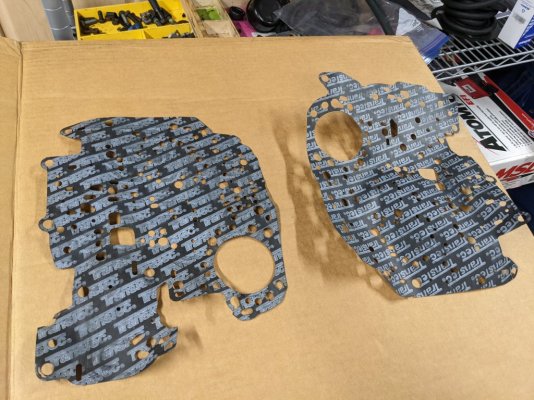You must be registered for see images attach
How can one fluid be good for 4 types of Mercon, 3 types of Dexron and whatever Dodge and all the imports use?
Asking for a friend.
Dex Merc, wrecking more transmissions every day.
I'm hardly a tranny expert, but I've been around in the repair industry for a good long time and tend to geek out a bit on fluids, any how I would like to share my thoughts.
You're question: "How can one fluid be good for 4 types of Mercon, 3 types of Dexron and whatever Dodge and all the imports use?"
The short version. It's not.
Read on for the long version of what I think / have put together though the years.
So back about 15 years ago I worked for Goodyear. Goodyear was always looking for a way to save a buck even if it cost more in the long run. They had us on this program from a while where we pumped DEX III into EVERYTHING, plus a bottle of additive, so if it was a Chrysler product we put the ATF+4 additive in it. It was one of my first experiences with a fluid (additive) that was one size fits all. It was horrible. The onslaught of customer complaints about shifting, just in the store I ran, was almost enough to get me to quit. I don't think they were even on that program for a year.
At the shop I currently manage I have an entire double shelf that has nothing but the factory filled ATF fluid for most of the vehicles we commonly see.
DEXIII is still made, under various specs. ACDelco still makes the stuff, they call it type III (H) which was the last release or specification of DEXIII you can bet that's what's in my tranny and what's on the shelf at the shop. Is there better fluid for our trannys, maybe, like I said I'm hardly a tranny expert, but it's the closest thing you're going to get to what went in our trucks at the factory in todays world. Now some guys will say that something like the Valvoline maxlife is better because it's full synthetic and will prolong the life of the transmission and lower temps and take more heat before breaking down. That may very well be true and when the day comes I rebuild my transmission I may go to something like that. But lets be clear, that fluid is a modern fluid spec'ed for Dextron VI / Mercron LV, it considered improved over previous releases of dextron so it's "backward compatible". Oh and Valvoline still makes DEXIII, in the blue bottle simply called DEXIII.


